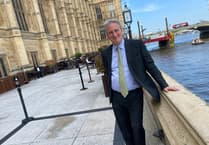It is not so long since it was thought something approaching scandalous that the BBC had misled people over the naming of a kitten.
Despite a viewers’ poll that would have named the new Blue Peter kitten Cookie, the show’s producers decided instead to declare that the second-placed name, Socks, had won. It is not clear why.
It took time for the story to come out, but once it did, it ran in the media for days. There would be a public apology, a sacking, and a second kitten procured – this one to be called Cookie. It became dubbed, inevitably, the BBC’s ‘cat flap’.
Although there was also a wider context of other recent misleading incidents around phone-ins and competitions, all this kerfuffle was about nothing more serious than the naming of a cat.
The point was that it was a breach of trust, from an organisation people thought they could rely on – all the more important given the young age of the Blue Peter audience.
Two decades on and in the age of the internet, notions of truth and reliability have taken many a knock. On social media, traditional news sources vie not only with citizen journalists’ first-hand accounts, but pop-up commentators, faux news sites and hostile states’ bots. AI will make it more complicated yet.
In this media melee, long-standing, trusted news brands are more important than ever, from national broadcasters to local newspapers such as the Herald and Post.
The Reuters Institute of Journalism has surveyed people across the world and finds that local newspapers are among the most trusted sources in many countries, including ours.
Where Britain is unusual is in having a public service broadcaster quite like the BBC, which here is both the most used, and the most trusted, source.
This is why the revelations of the last couple of weeks are so significant.
The splicing of the speech by President Trump clearly misled. No matter if, as some may suggest, “it was reflective of the broader picture” or some such. The internet is full of people who believe they are in touch with some bigger truth, and all manner of littler truths can be overlooked in the quest to convey it. That is not what we have the BBC for.
This was not some minor issue of context, it changed the meaning of the content. In any big organisation, someone can make a bad judgement, things can go wrong. The question is how, and how quickly, those things are then addressed, and righted. It should not take a year – and a leak – to see action.
In his letter to the Culture, Media & Sport select committee, the BBC Chairman writes that informing people impartially, truthfully, and based on evidence they can trust is the BBC’s “sacred job”. That is well put.
A version of this article first appeared on Mr Hinds’ Substack page.





Comments
This article has no comments yet. Be the first to leave a comment.